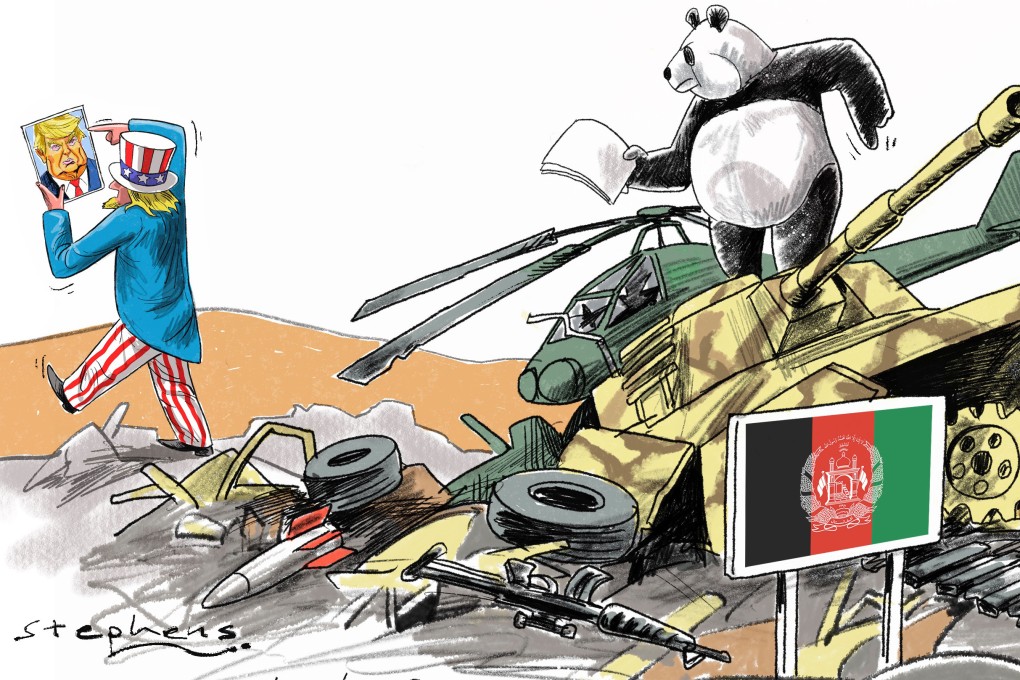Advertisement
Opinion | While the US plays the blame game, China takes the higher road on Afghanistan
- With both Washington and Beijing releasing papers on Afghanistan, the dichotomy of perspectives is clear
- The US puts most of the blame on the Trump administration for the catastrophic mismanagement, while China is eager to pursue peaceful reconstruction and anti-terrorism efforts
Reading Time:4 minutes
Why you can trust SCMP
12

Within days of each other, China and the US have released documents on the situation in Afghanistan, with Beijing blaming Washington for the humanitarian disaster, and Washington blaming the previous Trump administration for the chaotic exit of US troops.
China’s 11-point document, which also calls for international support of Afghanistan’s rebuilding efforts, was released a day ahead of Foreign Minister Qin Gang’s meeting in the Uzbek city of Samarkand with his counterparts from neighbouring Afghan countries.
The Pentagon’s 12-page review of the US troop withdrawal, released on April 6, mainly blamed the previous Trump administration for “severely” constraining President Joe Biden’s options in Afghanistan.
So, a dichotomy of perspectives on the Afghan issue is on full display. On one hand, the United States is grappling with its catastrophic management of Afghanistan after waging a war for more than 20 years and pouring trillions of dollars into a “nation-building” project that ultimately fell apart.
On the other hand, China is showing an eagerness to pursue peaceful reconstruction and normalisation in Afghanistan, and to push for its independent and sustainable development. China’s well-timed position paper clarifies its stance on a long-simmering and complex issue that poses a serious threat to regional peace and stability.
Unsurprisingly, China’s Afghan paper shares some aspects with its Ukraine position paper, unveiled on February 24. Common to both are the elements of collaboration, dialogue, peaceful resolution, non-interference, respect for sovereignty, and reconstruction and development.
Advertisement
